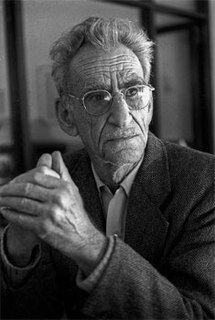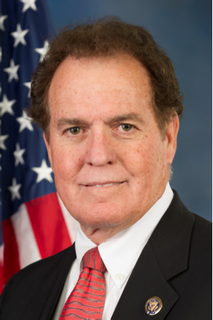A Quote by Timothy Morton
'Do not touch ontologically' doesn't mean 'are separated by empirically measurable hard edges.'
Related Quotes
For me, writing is an experience. It's an exercise in which I want to discover myself by taking my characters to the edges of human experience, to the edges of themselves and then, asking certain questions - about love, what does it mean to love? What's beauty? What is true beauty? What does it mean to be insane - crazy?
Dreams, memories, the sacred--they are all alike in that they are beyond our grasp. Once we are even marginally separated from what we can touch, the object is sanctified; it acquires the beauty of the unattainable, the quality of the miraculous. Everything, really, has this quality of sacredness, but we can desecrate it at a touch. How strange man is! His touch defiles and yet he contains the source of miracles.
This merely formal conceiving of the facts of one's own wretchedness is at the same time a departure from them--placing them in the object. It is not idle, therefore, to observe reflexively that in that very Thought, one has separated himself from them, and is no longer that which empirically he still sees himself to be.
Well," Peter Van Houten said, extending his hand to me. "It is at any rate a pleasure to meet such ontologically improbable creatures." I shook his swollen hand, and then he shook hands with Augustus. I was wondering what ontologically meant. Regardless, I liked it. Augustus and I were together in the Improbable Creatures Club: us and duck-billed platypuses.
There's a tremendous popular fallacy which holds that significant research can be carried out by trying things. Actually it is easy to show that in general no significant problem can be solved empirically, except for accidents so rare as to be statistically unimportant. One of my jests is to say that we work empirically -- we use bull's eye empiricism. We try everything, but we try the right thing first!







































